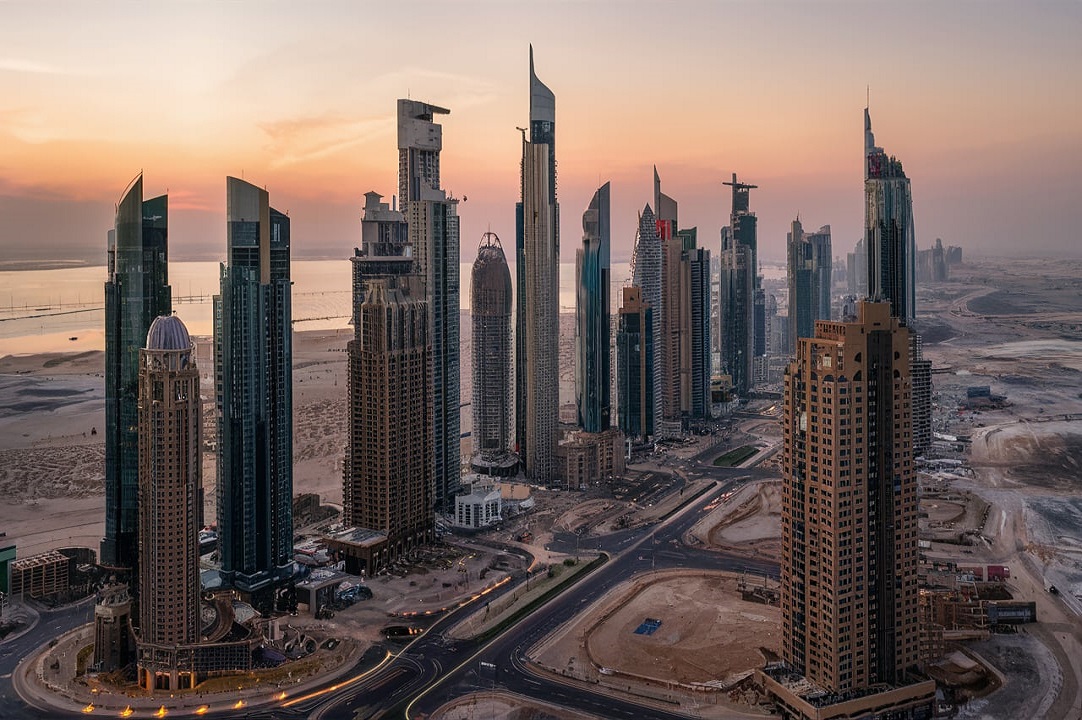Saudi Arabia’s Al-Kharj Governorate poised for industrial growth, aligns with government goals to boost local content in production. Minister Alkhorayef highlights Al-Kharj’s strategic role in military industries and agricultural advancement at Riyadh’s Industrial Forum, which hosts key companies. With investments exceeding SR5 billion, 500 factories are located within the 24 million square meter industrial city. The Kingdom’s National Industrial Strategy aims to double exports, increase investments, and triple GDP by 2030 for the industrial sector. Alkhorayef stresses Fourth Industrial Revolution alignment with Vision 2030, urging chamber collaboration to seize opportunities and address private sector challenges.
Al-Kharj’s Agriculture Boosts Saudi Industrial Growth
Al Kharj Industrial City in Saudi Arabia hosts 500 enterprises with investments exceeding SR5 billion, offering an ideal investment climate. These factories provide goods for a variety of markets, including food, medicine, chemicals, metals, renewable energy, machinery, and equipment. At the ‘Al Kharj Industrial Forum,’ Minister Al-Khorayef emphasized Al Kharj’s significance in Saudi’s industrial scene and agriculture. The event recognized the sponsorship of two significant agricultural enterprises, the Institute of Food Industries and Almarai.k Governors Faisal bin Bandar and Fahad bin Mohammed of Riyadh and Al Kharj respectively, sponsored the event, showcasing support. Almarai’s involvement highlights its strategic importance as the biggest food producer in the Middle East and the Kingdom.
Al-Kharj Spurs Industrial and Agricultural Growth
Human well-being depends on food security, which also affects sustainability and national security. With 80% of food imported, Saudi Arabia’s agriculture sector needs self-sufficiency to reduce reliance on external sources. Research that visited local farms in the Al-Kharj region looked at issues facing the agriculture industry. The findings illuminate local issues and hold relevance for the wider Gulf region, where similar challenges are often faced. The study’s suggestions aim to address identified issues and could inspire further research initiatives in related fields. The study acknowledges agriculture’s pivotal role in national prosperity, aiming to enhance food security and economic resilience through local solutions.
Enhancing Al-Kharj Agriculture Through Infrastructure
Projected global population exceeding 9 billion by 2050 mandates sustainable solutions for a 70% surge in food demand. Growing input costs and the lack of direct farmer-to-consumer links in traditional supply chain systems hamper data sharing and collection. This article suggests a blockchain-based IoT approach to improve supply chain quality and transparency in order to address these problems. Blockchain enhances transaction quality and lets buyers confirm the legitimacy of products by decentralizing data storage and using smart contracts. This model uses 100 IoT nodes per 500 m2 cluster farm to monitor crop disease, temperature, and soil moisture with an accuracy of 90.4%. The suggested method transforms the food supply chain and guarantees effectiveness, reliability, and openness among participants. By 2050, supply chain security, privacy, and trust will be further strengthened through the use of smart contracts and immutable ledger technology, helping to fulfill the increasing demands of global food production.
Future Prospects: Overcoming Supply Chain Challenges
This essay addresses the general difficulties that the process industries running global supply chains and e-commerce face in common. We go into detail about how, despite their numerous differences, the process industries and e-commerce face similar obstacles in their quest to maintain efficiency, stay competitive, and meet the ever-increasing demands of stakeholders and customers. Both industries have been early adopters of machine intelligence-based decision support tools, but they also have unresolved issues with scalability, integrating decision-making across internal business units and over varying time horizons (e.g., strategic, tactical, and execution-level decisions), and coordinating the efforts of human and computer-based decision-makers. In our discussion of potential future developments and avenues for supply chain research, we make the case that machine intelligence combined with multi-agent systems that are rigorously trained to handle human decision-making represent a strong contender for resolving these pressing issues.
Final Thoughts
Al-Kharj epitomizes Saudi Arabia’s journey towards economic diversification and self-reliance, symbolizing both agricultural abundance and industrial prowess. Its strategic location, supported by robust infrastructure and government initiatives, has made it an innovation hub in both sectors. Al-Kharj’s success highlights the need to invest in agriculture and industry for food security and sustainable development, inspiring other regions. Leveraging technological advancements like blockchain-based Internet of Things solutions, Al-Kharj addresses supply chain challenges and adapts to evolving population needs. With a promising outlook, it fosters creativity, collaboration, and investment opportunities. Positioned at the forefront of Saudi Arabia’s pursuit of economic prosperity and global leadership in manufacturing and agriculture, Al-Kharj plays a crucial role in shaping the nation’s future.
Frequently Asked Questions (FAQs)
Q: What is the meaning of Al Kharj?
A: The origins. The name Alkharj, which means “the valley that has no access to it” in Arabic, accurately describes the significant area. This description aptly portrays the region, as the valleys that flow into it head eastward into the hills of Al-Sahba (Arabic: السهباء) and are sheltered by the sands of Aldahna (Arabic: الدهنـاء).
Q: What does Saudi Arabia export?
A: Saudi Arabia ranks 19th globally in terms of exports and 20th in terms of imports.
Exports now represent all economic sectors. Building products, plastics, metal items, electrical appliances, and petrochemicals are the top exports to almost ninety nations.
Q: What is the agriculture of Saudi Arabia?
A: Watermelon, grapes, citrus fruits, onions, squash, and tomatoes are some of its most productive crops. The Al-Hikmah Research Station at Jizan, in the southwest of the country, is producing tropical fruits such as guavas, bananas, paw-paws, pineapples, and mangoes.








1 Comment
Guest Posting Backlinks Service:
Hey Dear Do you want guest posting service on our high-quality sites? I have outstanding websites for your targeted niche and I am sure that after creating payback links on all my websites, your website will get a very good ranking in all search engines. I assure you that I will not remove your post and it will be permanent. I beg you to give me a chance, I will not disappoint you.
I have lots of high-quality websites where I can publish your quality content. I believe that guest blogging is one of the most effective ways to boost your search engine result page.
I assure you that you can use my resource one time and you will get good results within a couple of months. I am looking forward to working with you and want to make a long-term business relationship with you forever.
Here are our websites in Google Sheets Please if you want more information let me know
https://docs.google.com/spreadsheets/d/1a_GwzNeJlwPVzXXZ6GTdzDxGoX-b6rLKUk3JLpnDFtk/edit?usp=sharing
I am waiting for your reply.
Best Regards